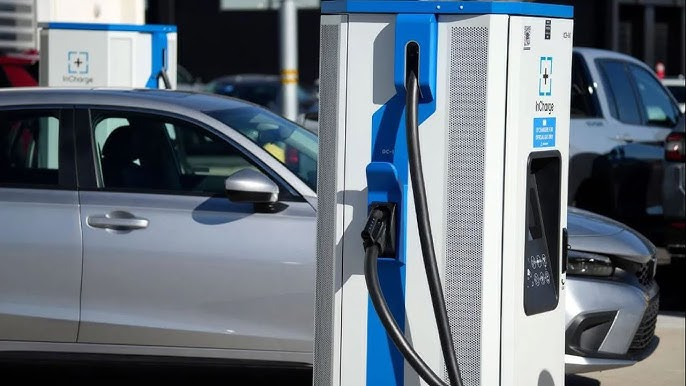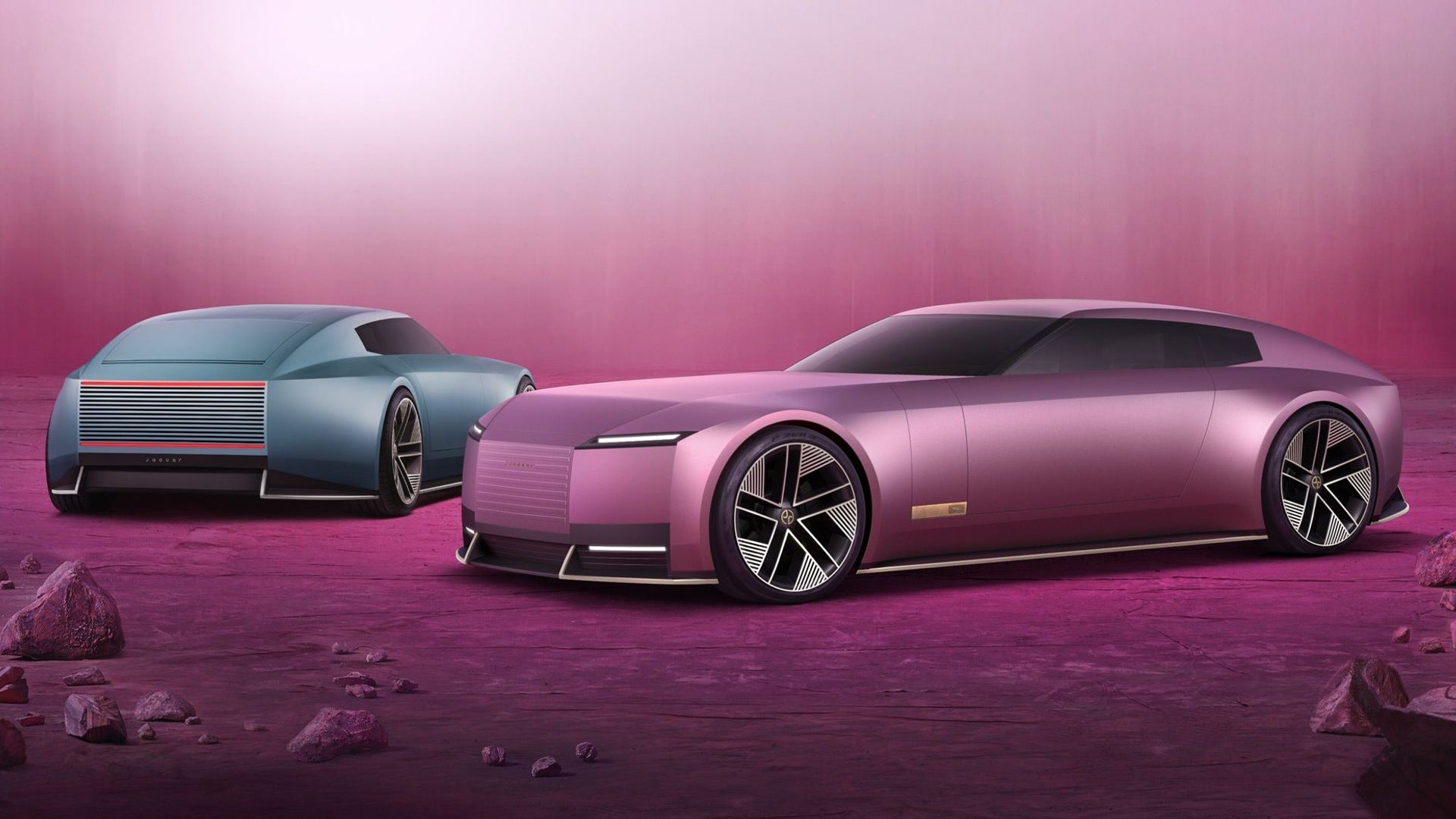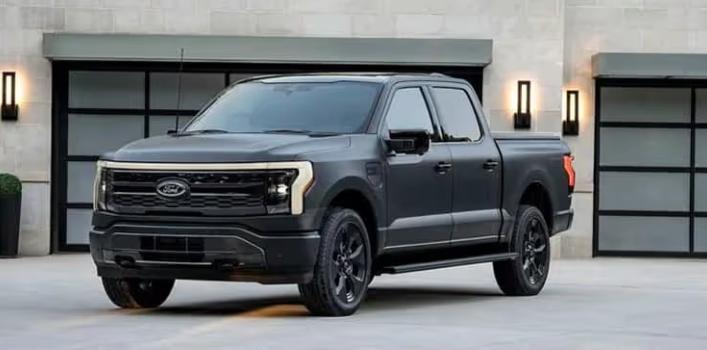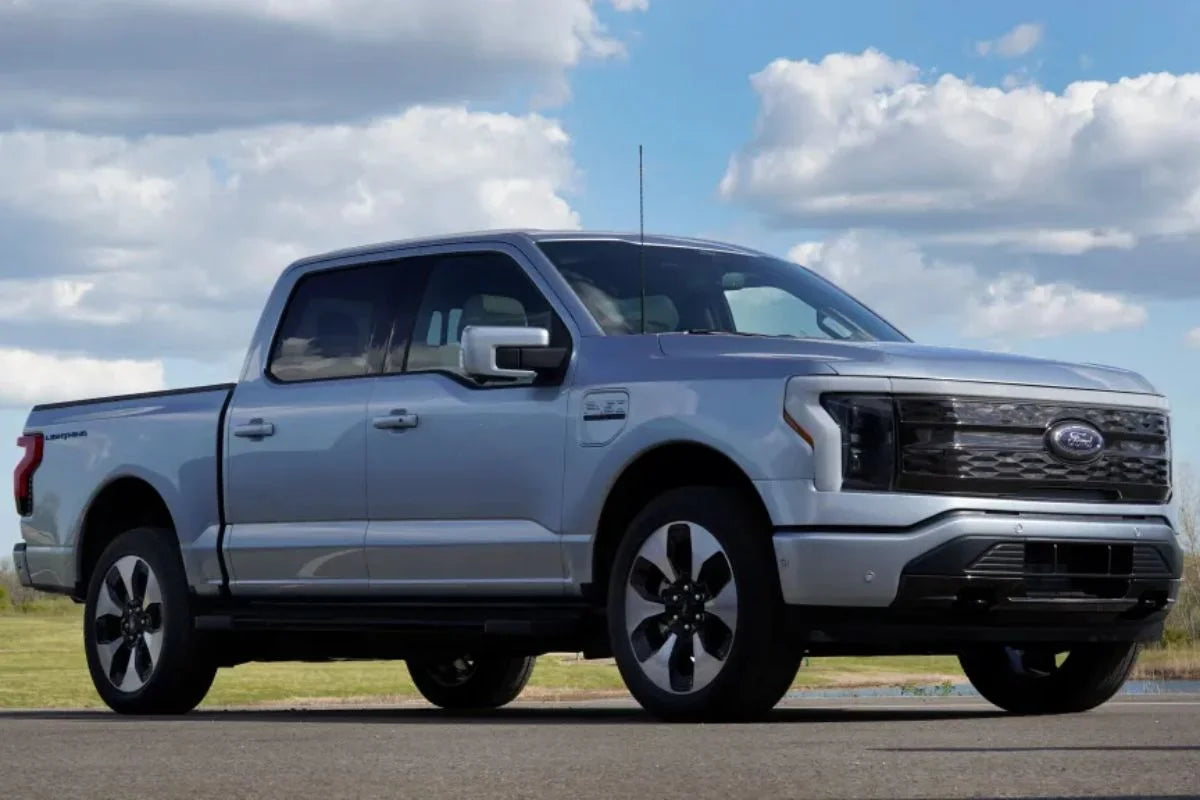Inhaltsverzeichnis
Steuergutschriften, Rabatte und Anreize für Elektrofahrzeuge im Bundesstaat Washington
Rabatte für EV-Ladegeräte im Bundesstaat Washington
Ladegebühren für Elektrofahrzeuge im Bundesstaat Washington
Anreize zur Elektrifizierung von Privathaushalten im Bundesstaat Washington
Da die Nachfrage nach Elektrofahrzeugen (EVs) weiter steigt, setzt der Bundesstaat Washington mit einer Reihe attraktiver Steuergutschriften und Anreize Maßstäbe bei der Förderung umweltfreundlicher Mobilität. Egal, ob Sie den Umstieg auf ein Elektrofahrzeug planen oder bereits eines besitzen – diese finanziellen Vorteile können die Anschaffungskosten für ein Fahrzeug und die Installation der Ladeinfrastruktur deutlich senken. In diesem Blogbeitrag stellen wir Ihnen die Steuergutschriften und Ladeanreize für Elektrofahrzeuge in Washington vor, damit Sie das Engagement des Bundesstaates für nachhaltige Mobilität optimal nutzen können. Von Rabatten beim Kauf eines Elektrofahrzeugs bis hin zu Zuschüssen für Heimladestationen – der beste Zeitpunkt für den Umstieg auf Elektrofahrzeuge im Evergreen State ist jetzt.
Steuergutschriften, Rabatte und Anreize für Elektrofahrzeuge im Bundesstaat Washington

Neue Zuschüsse werden Gemeinden im ganzen Bundesstaat dabei helfen, die Ladeinfrastruktur für Elektrofahrzeuge aufzubauen und zu modernisieren.
Sofortrabattprogramm für Elektrofahrzeuge des Staates Washington für Neu- und Gebrauchtfahrzeuge
Als Einwohner des Bundesstaates Washington haben Sie möglicherweise Anspruch auf verschiedene Anreize und Rabatte beim Kauf oder Leasing neuer und gebrauchter Elektrofahrzeuge. Ab August 2024 erhalten Sie beim Abschluss eines Dreijahresleasingvertrags für ein neues Elektrofahrzeug Rabatte von bis zu 9.000 US-Dollar.
Beim Kauf eines Neuwagens und bei Leasingverträgen über zwei Jahre wird ein separater Rabatt von 5.000 US-Dollar gewährt.
Beim Kauf und Leasing eines gebrauchten Elektrofahrzeugs gibt es einen Rabatt von 2.500 US-Dollar.
Die Finanzierung der Washingtoner Elektrofahrzeuginitiative erfolgt aus dem allgemeinen Staatsfonds. Es gelten bestimmte Einkommensbeschränkungen. Weitere Informationen finden Sie auf der Seite zum Washingtoner Elektrofahrzeug-Sofortrabattprogramm .
Umsatzsteuerbefreiung für Elektrofahrzeuge im Bundesstaat Washington
Darüber hinaus sind neue oder gebrauchte Fahrzeuge mit sauberem Alternativkraftstoff und bestimmte Plug-in-Hybridfahrzeuge vom Washington State Department of Licensing von der Umsatz- und Nutzungssteuer befreit. Die Umsatz- oder Nutzungssteuerbefreiung beträgt bis zu 16.000 US-Dollar des Verkaufs- oder Leasingpreises für Gebrauchtfahrzeuge und bis zu 15.000 US-Dollar des Verkaufs- oder Leasingpreises für Neufahrzeuge.
Die Befreiung wird auf den Verkaufspreis oder den Marktwert angewendet, wenn Sie einen Personenkraftwagen, einen leichten Lastkraftwagen oder einen mittelschweren Personenkraftwagen kaufen oder leasen, der ausschließlich mit einem sauberen alternativen Kraftstoff betrieben wird oder mindestens 30 Meilen allein mit Batteriestrom zurücklegen kann.
Weitere Informationen finden Sie im Abschnitt „Anreize für erneuerbare Energien/grüne Energien“ auf der Website „Anreizprogramme“ des Washington Department of Revenue .
Bundessteuergutschriften für Elektrofahrzeuge
Käufer können außerdem Anspruch auf staatliche Steuergutschriften haben, beispielsweise bis zu 7.500 US-Dollar für die Steuergutschrift für saubere Fahrzeuge und bis zu 4.000 US-Dollar für die Steuergutschrift für gebrauchte saubere Fahrzeuge . Es gelten Einkommensgrenzen sowie Grenzwerte für Batteriekomponenten und kritische Mineralien. Wenden Sie sich immer an einen qualifizierten Wirtschaftsprüfer oder Steuerberater, um Ihre Berechtigung zu bestätigen.
Versorgungsrabatte für neue und gebrauchte Elektroautos
Die Energieversorger in Washington haben eigene Elektrifizierungsprogramme für Energiewendetechnologien wie Elektrofahrzeuge entwickelt.
Clark Public Utilities (CPU) beispielsweise gewährt einkommensschwachen Privatkunden Rabatte von bis zu 2.000 US-Dollar beim Kauf eines gebrauchten Elektrofahrzeugs. Der Kaufpreis darf 20.000 US-Dollar nicht überschreiten und das Fahrzeug muss in Clark County zugelassen sein. Weitere Informationen finden Sie auf der Website des CPU Electric Vehicle Program .
Erkundigen Sie sich unbedingt bei Ihrem örtlichen Versorgungsunternehmen, welche Programme oder Produkte in Ihrer Gegend verfügbar sind.
Rabatte für EV-Ladegeräte im Bundesstaat Washington

Zusätzlich zu den oben genannten Anreizen, die für den Kauf eines Elektrofahrzeugs angeboten werden, können Einwohner von Washington auch einen Rabatt zwischen 100 und 1.000 US-Dollar für den Kauf und die Installation von Ladegeräten für Elektrofahrzeuge der Stufe 2 beantragen.
Scrollen Sie nach unten, um weitere Informationen zu bestimmten Versorgungsunternehmen im Bundesstaat Washington zu erhalten.
Washingtoner Versorgungsunternehmen gewähren Rabatte für EV-Ladegeräte und -Installation der Stufe 2
Clark Public Utilities (CPU) bietet Privatkunden beim Kauf und der Installation eines Level-2-Ladegeräts für Elektrofahrzeuge Rabatte zwischen 100 und 500 US-Dollar. Für ENERGY STAR-zertifizierte Ladegeräte mit WLAN-Funktion sind die Rabatte höher. Weitere Informationen, einschließlich der verfügbaren Fördermittel, finden Sie auf der Seite zum Elektrofahrzeugprogramm auf der Website von Clark Public Utilities.
Der Snohomish Public Utility District (PUD) gewährt Privatkunden beim Kauf und der Installation eines ENERGY STAR-zertifizierten Ladegeräts der Stufe 2 einen Rabatt von 200 US-Dollar. Pro Haushalt ist nur ein Rabatt möglich. Weitere Informationen finden Sie auf der Seite „Rabatte für Ladegeräte“ auf der Website des Snohomish County PUD.
Tacoma Public Utilities (TPU) gewährt Privatkunden, die ein Level-2-Ladegerät, einen Smart Splitter oder eine 240-Volt-Steckdose installieren, einen Rabatt von 400 US-Dollar in Form einer Rechnungsgutschrift. Antragsteller haben Anspruch auf einen Rabatt pro Installation, bis zu einem Gesamtbetrag von 600 US-Dollar. Weitere Informationen finden Sie auf der Seite zum Laden von Elektrofahrzeugen auf der Website von Tacoma Public Utilities.
Rabattprogramme für nicht-private Versorgungsunternehmen für Ladestationen für Elektrofahrzeuge
Clark Public Utilities (CPU) bietet gewerblichen und industriellen Kunden, die ein Level-2-Ladegerät für Elektrofahrzeuge kaufen und installieren, außerdem einen Rabatt von bis zu 500 US-Dollar. Die Ladegeräte müssen Energy Star-zertifiziert und WLAN-fähig sein.
Darüber hinaus haben gewerbliche und industrielle Kunden, die ein Level 3/DC-Schnellladegerät für Elektrofahrzeuge einsetzen, Anspruch auf eine jährliche Kontogutschrift von 1.500 USD pro Level 3-Ladegerät. Das Level 3-Ladegerät muss in Tarifplan 134 aufgeführt sein (Tarifplan 434 berechtigt nicht zum Anreiz der Gutschrift auf die Lastladerechnung).
Weitere Informationen finden Sie auf der Seite „Electric Vehicle Program“ für Geschäftskunden auf der Website von Clark Public Utilities.
Zuschüsse für EV-Ladegeräte im Bundesstaat Washington
Das Washington State Department of Ecology vergibt Zuschüsse für den Kauf und die Installation von Level-2-Ladegeräten für Elektrofahrzeuge an öffentlichen Standorten, am Arbeitsplatz, in Stammesgebieten und in Mehrfamilienhäusern. Die maximale Fördersumme beträgt 10.000 US-Dollar pro Ladestation (bis zu zehn Ladestationen). Antragsberechtigt sind Mehrfamilienhäuser, gemeinnützige Organisationen, staatliche und lokale Behörden, Unternehmen und Stammesregierungen. Antragsteller aus Umweltschutzgemeinschaften werden bevorzugt gefördert.
Es gelten zusätzliche Bedingungen. Das Programm wird durch den Washingtoner Anteil des Volkswagen Environmental Mitigation Trust finanziert. Weitere Informationen, einschließlich der Bewerbungsrichtlinien, finden Sie auf der Website des Washington State Department of Ecology zu den Volkswagen Enforcement Action Grants .
Ladegebühren für Elektrofahrzeuge im Bundesstaat Washington

Time-of-Use-Tarife (TOU) bieten niedrigere Stromkosten außerhalb der Spitzenzeiten, beispielsweise nachts. Nachfolgend finden Sie eine Liste der TOU-Tarife der großen Energieversorger in Washington.
Spezielle Ladetarife für Elektrofahrzeuge von Washington Utilities
Pacific Power bietet Privat-, Gewerbe- und Bewässerungskunden einen TOU-Tarif für das Laden von Elektrofahrzeugen. Sie können Geld sparen, indem Sie Energie außerhalb der Spitzenzeiten nutzen, wenn der Strombedarf geringer ist. Entdecken Sie die Optionen und wählen Sie die für Sie passende.
Weitere Informationen, einschließlich zu Preisen, Berechtigung und mehr, finden Sie auf der Seite „Nutzungszeit“ auf der Website von Pacific Power.
Kunden von Puget Sound Electric (PSE) können Prämien sammeln, indem sie das Laden ihres Elektrofahrzeugs an Tagen mit prognostiziertem Spitzenbedarf anpassen. Melden Sie sich für PSE Flex EV an und erhalten Sie 50 $ im Voraus. Zusätzlich erhalten Sie 0,50 $ für jede Kilowattstunde Strom, die Sie während der Flex-Aktionen einsparen. Außerdem nehmen Sie jeden Monat (außer Oktober und April) automatisch an der Verlosung von zwei Geschenkkarten im Wert von 250 $ teil – nur für Ihre Anmeldung.
Weitere Informationen, einschließlich zu Preisen und Berechtigung, finden Sie auf der PSE Flex EV- Seite.
Anreize zur Elektrifizierung von Privathaushalten im Bundesstaat Washington

Im Jahr 2024 wird der Staat Washington voraussichtlich über den Inflation Reduction Act finanzierte Energierabatte für Privathaushalte gewähren. Damit stehen 82,7 Millionen US-Dollar für Rabatte auf die Energieeffizienz von Privathaushalten und 166 Millionen US-Dollar für die Elektrifizierung von Privathaushalten zur Verfügung. Diese Rabatte sind für Haushaltsgeräterabatte, Isolierung und Luftabdichtung, Wärmepumpen für die Raum- und Warmwasserbereitung sowie für die Aufrüstung der für diese Nachrüstungen erforderlichen intelligenten Schalttafeln vorgesehen.
Durch die Kombination des Besitzes eines Elektrofahrzeugs mit anderen Elektrifizierungsprojekten, wie etwa der Aufrüstung Ihres Hauses mit Solarmodulen und Batteriespeichern oder der Investition in eine Wärmepumpe, können Sie noch mehr sparen und gleichzeitig Ihre Umweltbelastung verringern.
In Washington können Sie neben der US-Bundesregierung auch von Ihrem Stromanbieter Fördermittel für die Elektrifizierung Ihres Zuhauses erhalten. Scrollen Sie nach unten, um Details zu Rabatten und Fördermitteln für bestimmte Technologien zur Elektrifizierung Ihres Zuhauses zu erfahren.
Batteriespeicher
Derzeit gibt es in Washington keine staatlichen oder versorgungswirtschaftlichen Anreize für Batteriespeicher. Der 25D Residential Clean Energy Tax Credit gewährt jedoch eine bundesstaatliche Steuergutschrift von 30 % auf die Kosten neuer Batteriespeichersysteme ab 3 kWh.
Schalttafeln
Die 25C-Steuergutschrift für energieeffiziente Eigenheimverbesserungen bietet eine staatliche Steuergutschrift (bis zu 30 % der Projektkosten, gedeckelt auf 600 US-Dollar) für die Modernisierung von Schalttafeln, die für die Fertigstellung von Elektrifizierungsprojekten wie Wärmepumpen und Warmwasserbereitern mit Wärmepumpe erforderlich sind. Die 25C-Steuergutschriften stehen Mietern und Hausbesitzern zur Verfügung, die ihr Haupt- oder Zweitwohnsitz modernisieren.
Qualifizierte Schalttafeln müssen den Standards des National Electrical Code (NEC) entsprechen und eine Kapazität von mindestens 200 Ampere aufweisen. Das bedeutet, dass Ihre neue/modernisierte Schalttafel eine Last von mindestens 200 Ampere versorgen kann, Sie jedoch keine 200 Ampere Eingangsleistung benötigen. Smart Panels können sich qualifizieren, wenn sie eine Last von 200 Ampere versorgen können.
Wenn Sie 25D für ein Solar- oder Batteriespeicherprojekt für Privathaushalte beantragen und der Installationsprozess eine Aufrüstung Ihres Hauptpanels erforderte, können Sie die 25D auch auf die Kosten des elektrischen Panels anwenden.
Wärmepumpen und Warmwasserbereiter
Die Steuergutschrift 25C für energieeffiziente Hausverbesserungen gilt auch für Wärmepumpen und Warmwasserbereiter mit Wärmepumpe. Es gibt eine 30-prozentige Bundessteuergutschrift (maximal 2.000 US-Dollar). Förderfähige Technologien müssen bestimmte Energieeffizienzanforderungen erfüllen.
Solarmodule
Der 25D Residential Clean Energy Tax Credit bietet außerdem eine 30-prozentige Bundessteuergutschrift auf die Kosten von Photovoltaik-Solarpanelsystemen.
Mit großzügigen Steuergutschriften, Rabatten und Ladeanreizen macht der Bundesstaat Washington den Umstieg auf Elektrofahrzeuge so einfach wie nie zuvor. Diese Anreize senken nicht nur die Kosten für die Umstellung auf umweltfreundliche Fahrzeuge, sondern tragen auch zu einer saubereren Umwelt bei, indem sie CO2-Emissionen reduzieren und nachhaltige Energienutzung fördern. Egal, ob Sie Ihr erstes Elektrofahrzeug kaufen oder auf ein energieeffizienteres Modell umsteigen möchten – jetzt ist der perfekte Zeitpunkt, die finanzielle Unterstützung Washingtons für Elektrofahrzeuge zu nutzen. Bleiben Sie über die neuesten Änderungen in Richtlinien und Programmen auf dem Laufenden und starten Sie noch heute in eine sauberere, nachhaltigere Zukunft.
Weitere Blogs zur EV-Steuer finden Sie auf der offiziellen Website von EVDANCE.








Aktie:
Sparen Sie Geld: Ein tiefer Einblick in die Steuergutschriften und Ladeanreize für Elektrofahrzeuge in Texas
Mit dem Auto in die Zukunft: Steuergutschriften und Ladeanreize für Elektrofahrzeuge in Georgia